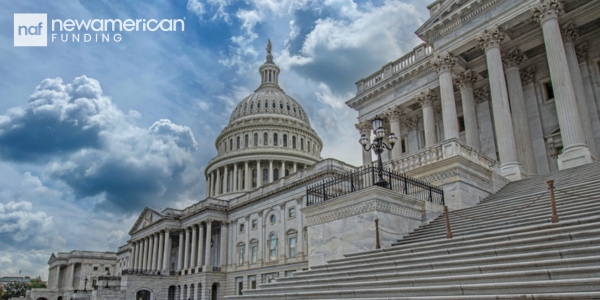Housing News, Videos
Inflation Uptick or Delta Downturn in Rates
September 2, 2021
Hello, everyone, and welcome back to the Mortgage Rundown. Today we're going to talk about what's happening in the capital markets. No one really knows which way rates are going. Some are of the opinion that inflation is too high, the job market is strong, the economy is roaring back, and accommodation needs to be removed and rates need to move back up.
And then you have the other side saying the economy is very frail. This Delta variant or just the Coronavirus itself is still creating a lot of risks and a lot of challenges. And perhaps maybe interest rates seem to stay low.
If you look at the graph on your screen, you'll see the unemployment rate for the last couple of years. And as you can see, right before the pandemic, the unemployment rate was near its all-time low.
If you also notice to the far right that the unemployment rate continues to drop. In fact, it's almost near some of the lowest points it’s reached in history.
Here's another point on the job market. The graph on your screen is the total job openings. And as you can see, total job openings are at historic highs, meaning there are more jobs out there than there are people that are unemployed. So, there's another boost to this whole notion that the job market is actually very strong, even though the unemployment rate isn't right where it was prior to the pandemic.
The next part is on inflation, the price of goods and services is going up and up and up. And so that's somewhat of a challenge because the Fed on one hand is saying inflation is temporary. Right? This is something where prices will eventually work their way back down. And a lot of things that we're seeing are really supply disruptions, not necessarily permanent price increases.
I think for a lot of us, though, it does not feel like it's temporary. This feels like it's something that's going to be more sustainable. And so, that's where there's a little bit of gray area between, I think, what people feel on the street versus what the Fed is telling us when they stand in front of the cameras.
And so, what the Fed is trying to do is acknowledge what's going on, whether it be within the job market or whether it be with inflation in the economy coming back together and not scaring the market with taper talk.
In the last week with the Jackson Hole Symposium, the Fed did come out and say, "We are expecting to talk about tapering this year." And so, I think that is the most lighthearted way they can say, "Look, this is coming, but we don't want to scare the market."
So, we do have a Federal Reserve meeting on September 22. I think, you know, to be honest, I think they're going to talk about taper a little bit, but I think they're really going to punt saying, ‘look, the Fed meeting in the last Fed meeting of 2021 is when they're actually going to talk about or even decide on tapering.’ And they really want to slow play this whole thing. They don't want to create any short-term volatility in the market.
I hope that makes sense to all of you. Thank you all for watching and have a great day.




 Smart Moves Start Here.
Smart Moves Start Here.